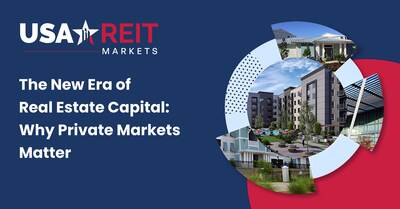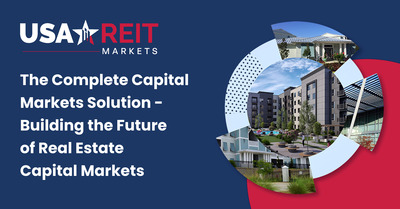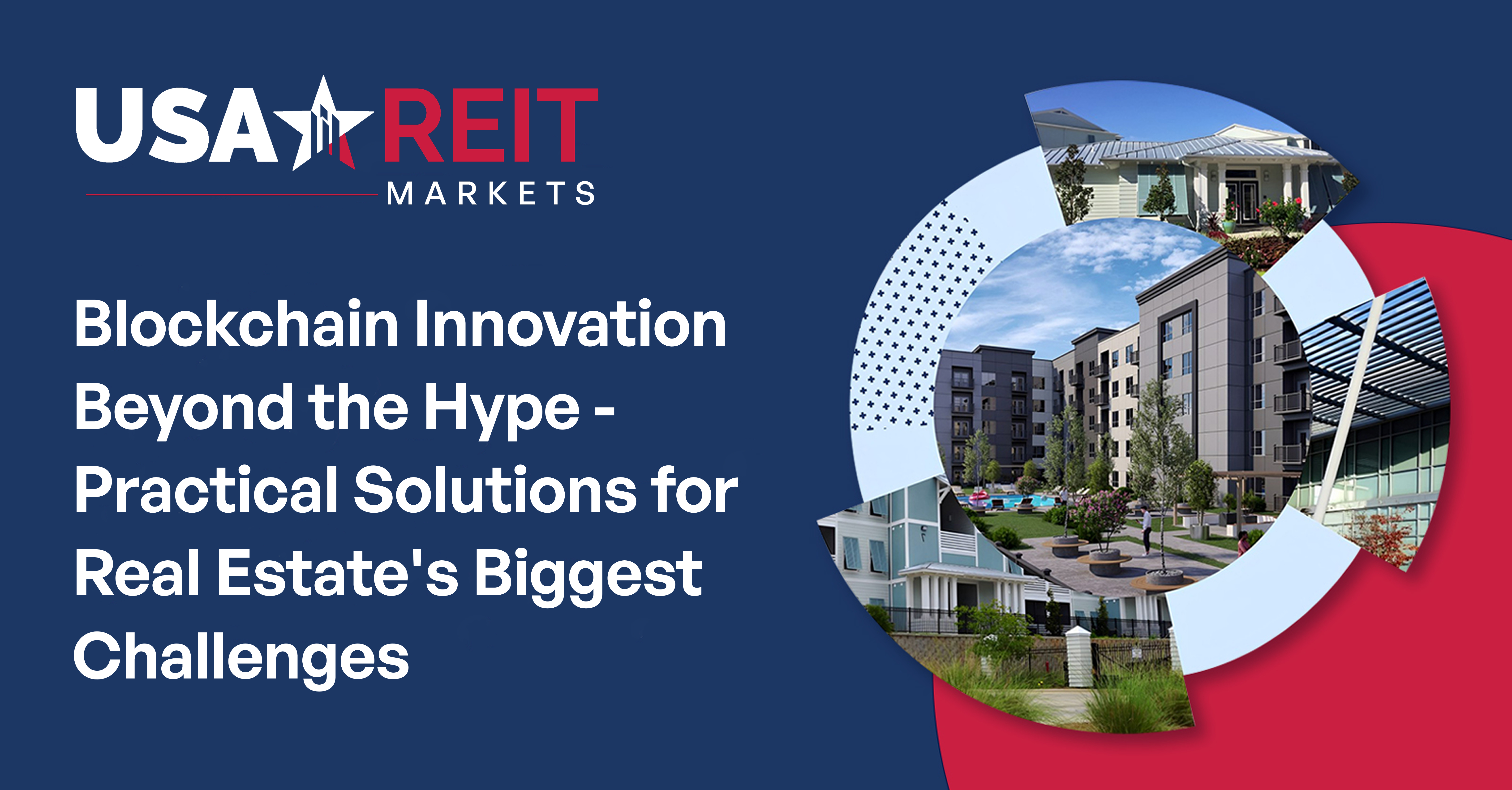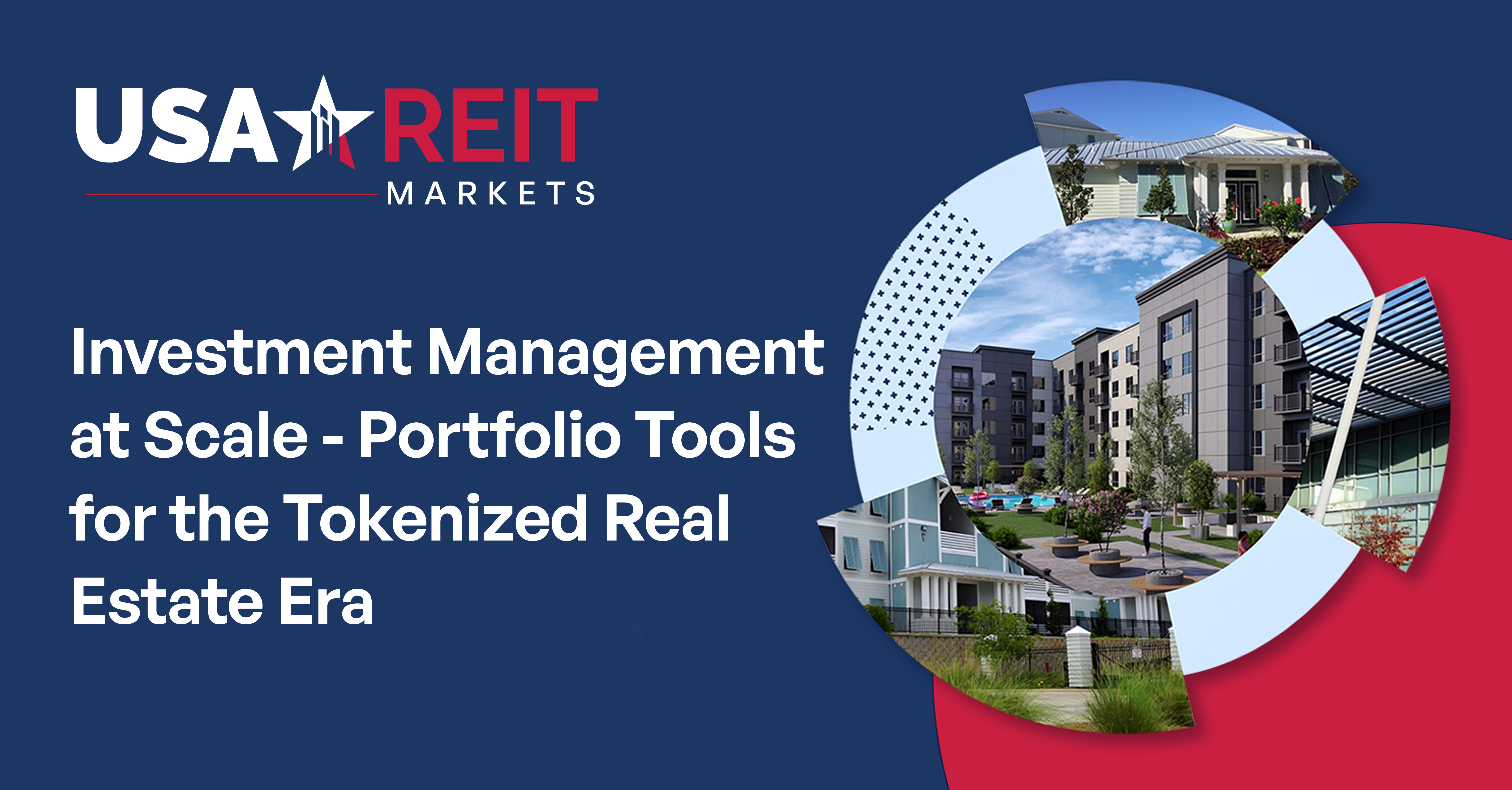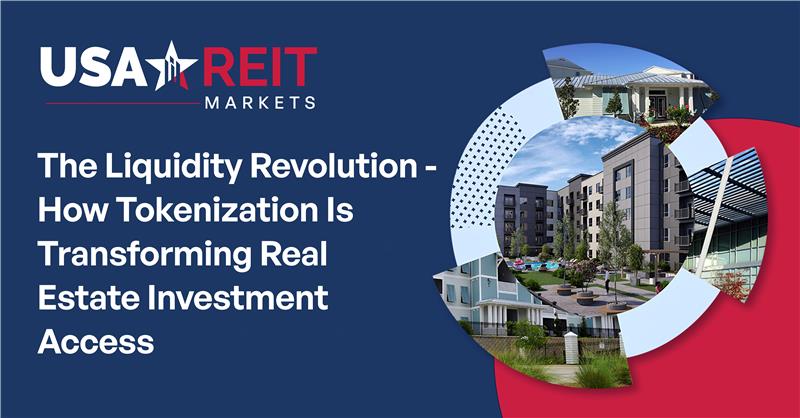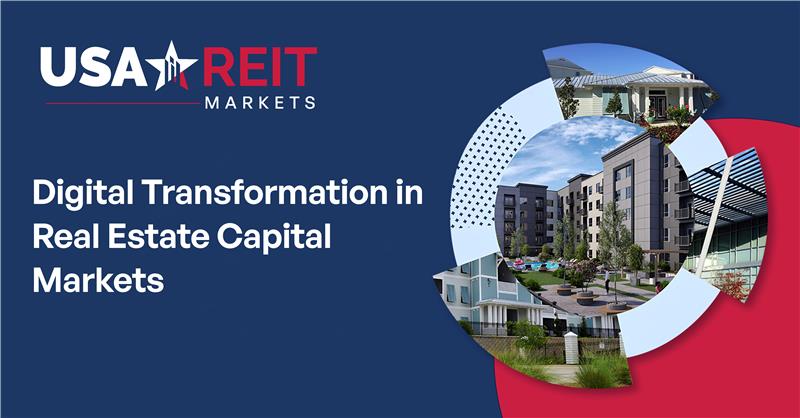Institutional-Grade Security Transforms Digital Real Estate Capital Markets
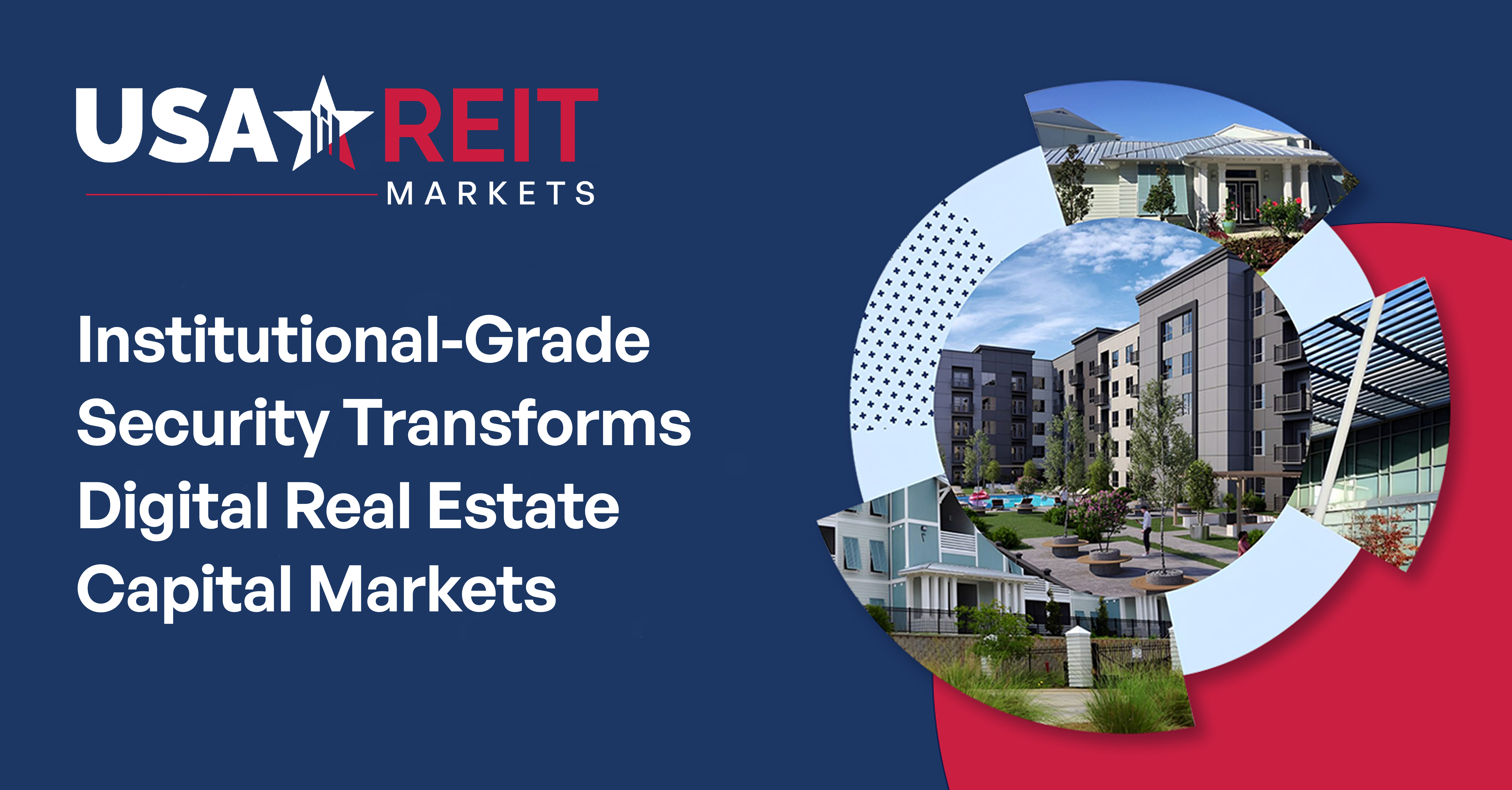
Institutional-Grade Security Transforms Digital Real Estate Capital Markets
The digitization of real estate capital markets represents one of the most significant opportunities for operational transformation in decades. As institutional investors and sponsors increasingly demand both efficiency and security in their transactions, blockchain-based tokenization platforms are emerging with security frameworks that exceed traditional banking standards. This week, we explore how institutional-grade security infrastructure is enabling new possibilities for real estate sponsors to access broader capital markets while providing investors with unprecedented liquidity and portfolio management capabilities.
The Digital Transformation of Real Estate Capital Formation
The real estate market represents substantial transaction volumes, with commercial real estate transactions reaching 752 billion U.S. dollars in 2022 and full-year 2024 global commercial real estate volumes reaching US$703 billion, reflecting a 14% increase. While comprehensive data on institutional investor share varies by market segment, institutional investors (professional, pension, and sovereign funds; banks; insurance companies) drove significant commercial real estate acquisitions, with foreign institutional investors alone acquiring $37 billion or 70% of cross-border flows in recent years. Traditional capital raising methods—characterized by lengthy subscription processes, limited investor pools, and manual administrative overhead—are giving way to digital platforms that can dramatically expand access to capital while reducing operational costs.
For Real Estate Sponsors:
For Investors:
Traditional real estate investments have historically been characterized by high minimum investments, limited liquidity, and complex ongoing management requirements. Modern tokenization platforms are creating new opportunities for portfolio diversification and liquidity that were previously unavailable in private real estate markets.The transition to digital real estate capital markets requires security infrastructure that not only matches but exceeds the protection levels of traditional financial institutions. Institutional investors managing billion-dollar portfolios demand comprehensive security frameworks that address multiple threat vectors while maintaining operational efficiency.
Multi-Layer Security Architecture
Modern institutional-grade platforms implement comprehensive security approaches beginning with SOC 2 Type II compliance, which establishes rigorous controls for security, availability, processing integrity, confidentiality, and privacy. This third-party audited certification ensures platforms meet stringent requirements demanded by institutional investors and regulatory bodies.Encryption standards form the next critical layer, with AES-256 encryption protecting sensitive data both at rest and in transit. Combined with advanced TLS protocols for data transmission, this creates institutional-grade protection that would require computational resources far exceeding current technological capabilities to compromise through brute-force methods.
Blockchain Technology and Immutable Record Keeping
The integration of blockchain technology provides unprecedented transparency and auditability for real estate transactions. Unlike traditional databases that can be altered or corrupted, blockchain creates an immutable ledger of all transactions, ownership transfers, and document modifications. This technology is particularly valuable for sponsors who need to demonstrate clear regulatory compliance and for investors who require transparent reporting on their holdings.Smart contract technology further enhances security and efficiency by automating execution of predefined conditions without manual intervention. This eliminates risks associated with human error while ensuring that distribution schedules, voting rights, and other investor protections are automatically enforced according to predetermined parameters.
Digital platforms with robust security frameworks are creating new possibilities for real estate sponsors across multiple dimensions:
Operational Efficiency: Automated processes for investor onboarding, KYC/AML compliance, distribution management, and cap table administration can reduce ongoing administrative costs by 40-70% compared to traditional methods. This efficiency gain allows sponsors to focus resources on asset management and deal sourcing rather than operational overhead.
Enhanced Investor Relations: Real-time reporting capabilities, automated communication systems, and transparent blockchain-based record keeping can significantly improve investor satisfaction and retention, potentially leading to increased participation in future offerings.
Creating New Investment Paradigms
For investors, tokenization platforms with institutional-grade security are enabling access to investment opportunities and capabilities that were previously unavailable:
Liquidity Solutions: Integrated trading systems enable investors to potentially access liquidity in previously illiquid private real estate investments, subject to regulatory requirements and platform capabilities.
Simplified Management: Consolidated platforms can provide unified portfolio oversight, automated distribution processing, and real-time performance reporting across multiple investments.
Advanced Security Protocols for High-Value Transactions
Multi-Signature Wallet Technology
Multi-signature wallet systems require multiple authorized parties to approve significant transactions, creating robust approval frameworks that prevent unauthorized access. For institutional real estate investments, this typically involves 2-of-3 or 3-of-5 signature requirements, ensuring that no single individual can unilaterally make unauthorized changes to investment structures.This technology is particularly relevant for tokenized real estate holdings, where digital tokens represent property ownership interests. Recent blockchain security research indicates that multi-signature wallets demonstrate significantly lower incidence of unauthorized access compared to single-signature alternatives.
AI-Powered Threat Detection
Institutional-grade platforms employ sophisticated threat detection systems utilizing artificial intelligence to identify suspicious activity patterns. These systems continuously monitor user behavior, transaction patterns, and access requests to detect potential security breaches before they can cause damage.Real-time monitoring capabilities include advanced behavioral analysis that can identify unauthorized access attempts within milliseconds, combined with automated response systems that can instantly secure compromised accounts and initiate recovery procedures.
Regulatory Compliance and Audit Excellence
The regulatory landscape for digital real estate securities continues to evolve, with increased oversight from the SEC and FINRA. Leading platforms maintain comprehensive audit trails that document every action, access request, and system modification. These tamper-proof records satisfy compliance requirements while providing transparency that institutional investors increasingly demand.
SEC-regulated Alternative Trading Systems operating in the digital real estate space must demonstrate robust cybersecurity frameworks, comprehensive business continuity plans, and regular third-party security assessments. Platforms achieving these standards often exceed the security posture of traditional financial institutions.
Case Study: Transforming Sponsor Operations
Consider a real estate development firm seeking to raise $50 million for a mixed-use project. Traditional capital raising might require 6-12 months, extensive legal documentation, and significant administrative overhead to manage investor relations throughout the investment lifecycle.
A digital platform approach could enable the sponsor to launch a regulatory-compliant offering in 4-6 weeks, access broader investor pools through digital marketing capabilities, and automate ongoing administrative functions like distribution processing and investor reporting. The combination of expanded capital access and reduced operational overhead could improve project economics while enhancing investor experience.
For investors, the same platform could provide opportunities to invest with lower minimums, access real-time project updates, and potentially access liquidity through integrated trading capabilities, subject to applicable regulations and holding periods.
The Competitive Advantage of Security Leadership
Platforms achieving industry-leading security certifications create significant competitive advantages beyond risk mitigation. Institutional investors increasingly evaluate platforms based on security capabilities, viewing robust protection as indicative of overall platform quality and reliability.
Superior security frameworks enable platforms to serve larger institutional clients with sophisticated requirements. Insurance companies, pension funds, and family offices all require extensive security documentation before committing capital. Platforms with comprehensive security capabilities can accelerate these approval processes and access larger pools of institutional investment.
Future-Proofing Digital Infrastructure
The security landscape continues evolving with emerging threats and advancing technology. Forward-thinking platforms are implementing quantum-resistant cryptography to address potential future risks while adopting zero-trust architecture principles that require continuous verification of all access requests.
As digital real estate markets mature, platforms that invest in advanced security infrastructure today will be best positioned to capture market share and serve increasingly sophisticated institutional clients.
For Real Estate Sponsors evaluating digital platforms, key assessment criteria should include:
- Third-party security certifications and compliance history
- Regulatory framework capabilities across multiple jurisdictions
- Integration capabilities with existing operational systems
- Track record of successful capital raises and sponsor satisfaction
- Platform security and insurance coverage
- Regulatory compliance and investor protection measures
- Liquidity capabilities and trading infrastructure
- Portfolio management and reporting tools
The convergence of institutional-grade security, regulatory compliance, and blockchain technology is creating unprecedented opportunities in real estate capital markets. Sponsors who embrace these capabilities early may discover significant competitive advantages in capital access and operational efficiency. Similarly, investors exploring tokenized real estate platforms may find new opportunities for diversification and liquidity that were previously unavailable.
As this market continues to mature, the platforms that combine robust security frameworks with comprehensive regulatory compliance will be best positioned to serve the evolving needs of both sponsors seeking efficient capital formation and investors pursuing diversified real estate exposure.
Visual Description for Design Team: Create a sophisticated infographic showing the digital transformation of real estate capital markets. Include two parallel pathways: one showing traditional processes (lengthy timelines, limited investor pools, manual operations) versus digital platform capabilities (streamlined processes, expanded access, automated functions). Center the graphic around a secure digital platform hub with security elements (encryption symbols, multi-signature indicators, blockchain representations) radiating outward to connect sponsors and investors. Use professional colors (deep blues, silver, white) to convey trust and innovation.
Latest Articles

